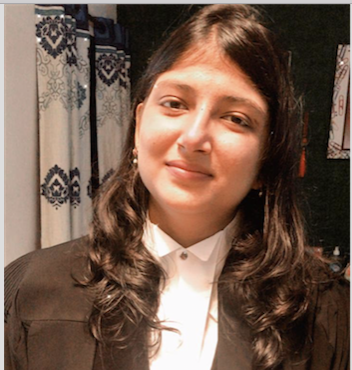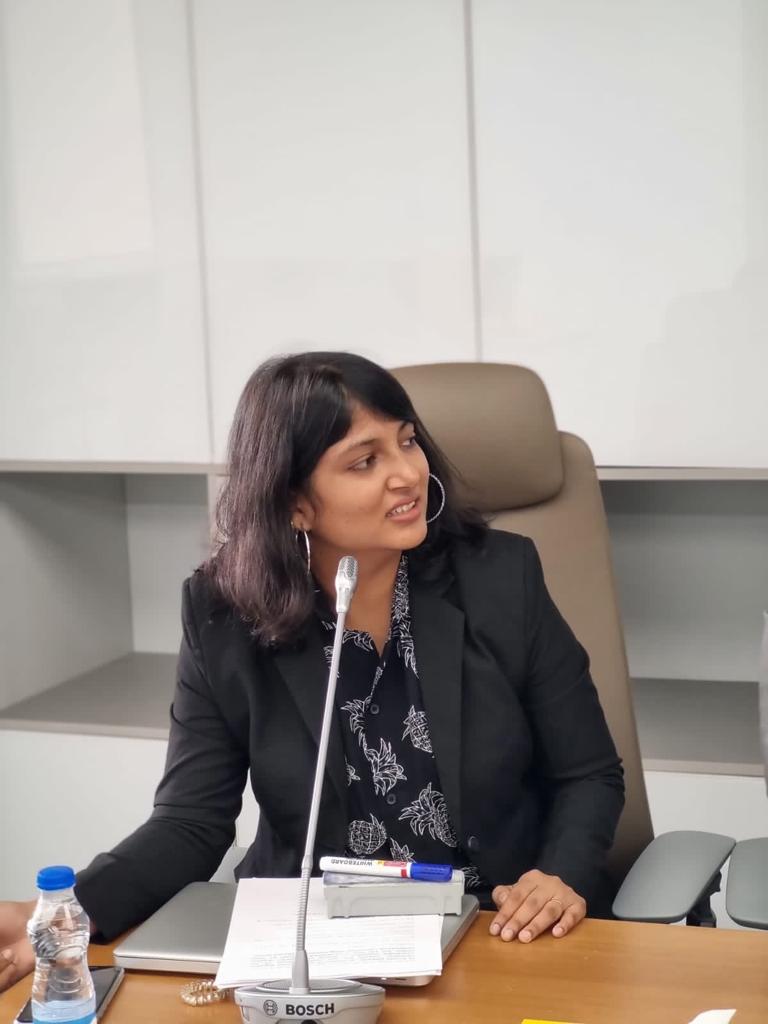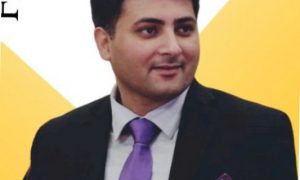This interview has been published by Prabhjot Singh, Priyanka Karwa and The SuperLawyer Team

Tell us about yourself – Why did you choose law? If not law, what other career options would you have considered?
Hi, I am Jagriti Sanghi. I am a law graduate of National University of Advanced Legal Studies, Kochi. I am a practising Advocate with 3 years of experience in court/tribunals litigation, dispute resolution and corporate advisory.
My practice areas include civil, criminal, consumer, family disputes, arbitration, mediation, insolvency and contractual matters. I regularly appear for cases in the courts of Telangana and as well as across India.
I have a passion in law, be it any subject. If someone asks me about my area of interest in law, I cannot possibly choose one.
This is because I just love the diversity of subjects from which one gathers immense knowledge. I believe that studying law is an art and it includes various aspects including but not limited to interpreting complex situations, breaking down laws, analyzing judgments, researching precedents, case management and writing simplified Articles/Blogs.
If not law, I would have chosen the path of becoming an Army Officer.
What are the best strategies that work for you while dealing with mediation cases? Tell our audience in detail please
So, mediation is quite different from the conventional adjudicatory process of courts. In mediation, there is complete party autonomy. The parties decide for themselves the outcome of the settlement/mediation process. Unlike court, mediation is not about winning and losing.
It is about reaching an amicable and sustainable solution. A court case takes years and years to be decided finally as parties can go for appeals, revision and so on. As a consequence, the parties expend lot of money, time, energy on it.
Since I know the peculiarities of litigation and court procedures, I always encourage my clients to go for mediation especially in family disputes.
The mediator’s duty is to assist the parties in charting out options and showing them the bigger picture after listening to the perspectives of both sides. The parties have to choose the best option for themselves in order to avoid the wasteful battle.
In a case, I urged the couple to go for mediation rather than jumping into long drawn contested case. The mediation worked as the couple settled their issues such as lump sum maintenance amount, custody of child, division of property amongst other things and filed for a mutual divorce with their consent terms.
There are no best strategies as such for mediation to work out. It is primarily about understanding human psychology and brainstorming viable options for the dispute to be settled peacefully between the parties.
How do you see the unconventional roles in law increasing?
My 10th Standard teacher suggested me not to choose law because she thought I would waste my talent in doing notary or basic clerical work in courts with no income. However, she didn’t know that a lawyer can don many roles.
A law graduate can become a Consultant, Paralegal, Human Resource manager, Jounalist, Faculty, Mediator, Contract Specialist, Insolvency Professional, Content Creators, Labour Relations Manager, Arbitrator and I am sure many more.
There are a variety of alternative career options for lawyers beyond the courts unlike past times.
Being an NLU student, what are the extra-curricular activities one must take advantage of? And do you believe that the law firms discriminate on the basis of NLU and Non-NLU?
At University, I used to often participate in moots, research papers, debates, paper presentation and negotiation/mediation competitions as that kept me engaged. These extra-curricular activities enabled me to think critically and opened my mind to new possibilities of research and legal thinking.
These activities should be opted by any law student irrespective of their University tag.
I have interned with many co-interns who were non-NLU students but were equally or in fact more capable and diligent. At least, the law firms I have interned with have not discriminated on the basis of NLU and Non-NLU tag. Their main focus was on the determination and hard work of the candidates.
How do you define “Thinking Legally”? Please elaborate for our audience.
Thinking legally is nothing but strategizing for my clients to come up with best and effective solutions within the confines of our legal system. It is also about learning to interpret and apply the law to a specific factual matrix of the case.
A lawyer has to approach a case from all angles, cull out material facts, avoid emotional entanglement, question everything, accept grey areas, comprehend the objective of laws, precedents and judicial opinions and anticipate the defense.
This trait comes with practice and experience and obviously cannot be mastered in a day. Thinking legally and differently is an ongoing process for any lawyer.
What was that one learning experience in your entire career trajectory that you’d credit to have shaped your career?
I helped a superannuated employee get a favorable order from the High Court of Telangana for his hard earned retirement benefits. It is when I realized that being an Advocate is truly a service to the public. I am devoted to coming up with best solutions for the interest of my clients.
Do you think that participating in National MUN, National Parliamentary Debate or National Moot Court Competition helps in real litigation or legal field?
Yes, definitely. Moot court competitions helped me in enhancing my oratory skills. It also instilled in me the confidence of drafting, researching and arguing legal points. The best part about moot court is that one has to prepare from both sides. That allows a law student to think critically on each and every point.
Because in real life, you can be approached by a client with a very weak side and you are supposed to do represent your client with the best possible arguments.
These competitions also help us to make friends with students from other Universities. These extracurricular activities enhance drafting, legal knowledge, research, command over the formal language, interpersonal skills, confidence and are always a great learning experience in a law student’s life before actually becoming a professional.
Lastly, is there any suggestion or advice that you’d like to give to our readers?
Do not ponder so much about your future, Have life goals and strive for it but always remember to enjoy it in the moment. Life is short and has many surprises for us.
Just make full use of the opportunities at your disposal in the present. This thought will help you to approach things differently. Good luck!
Get in touch with Jagiriti Sanghi-
























